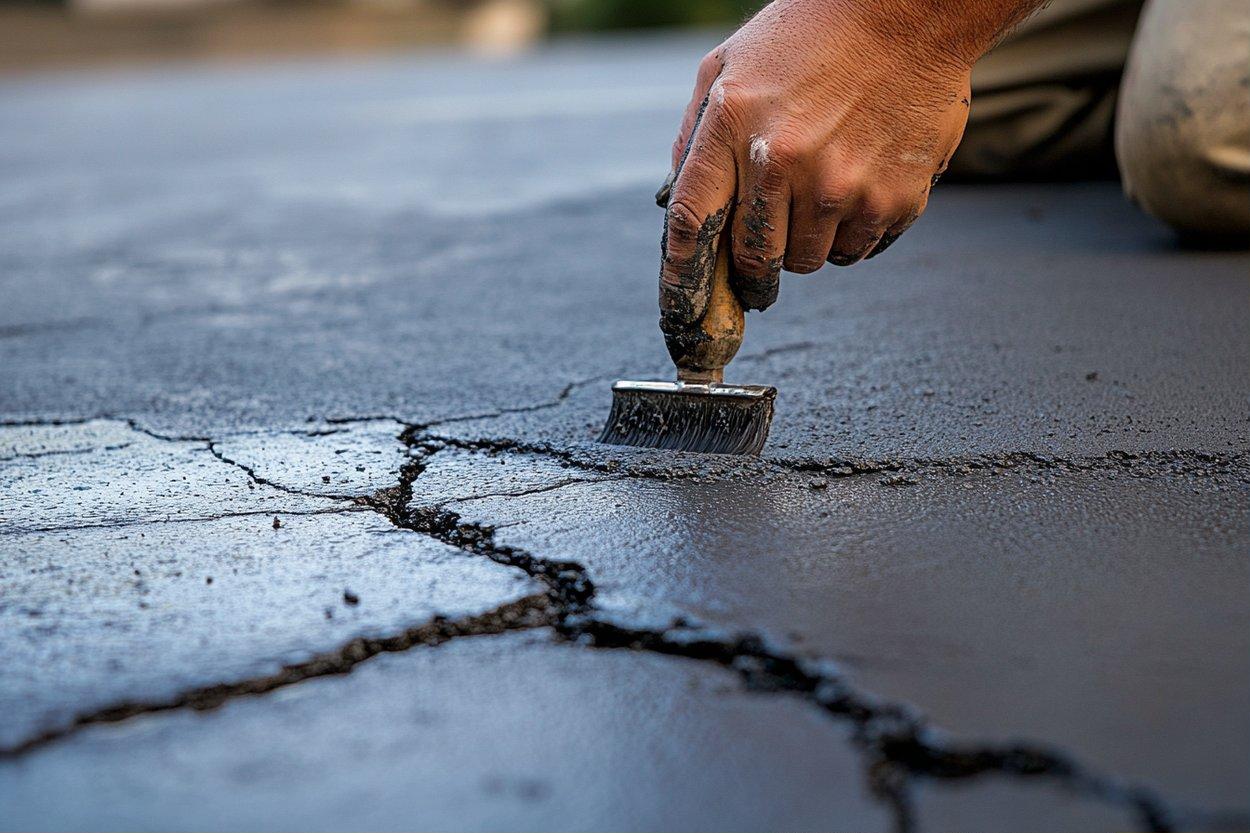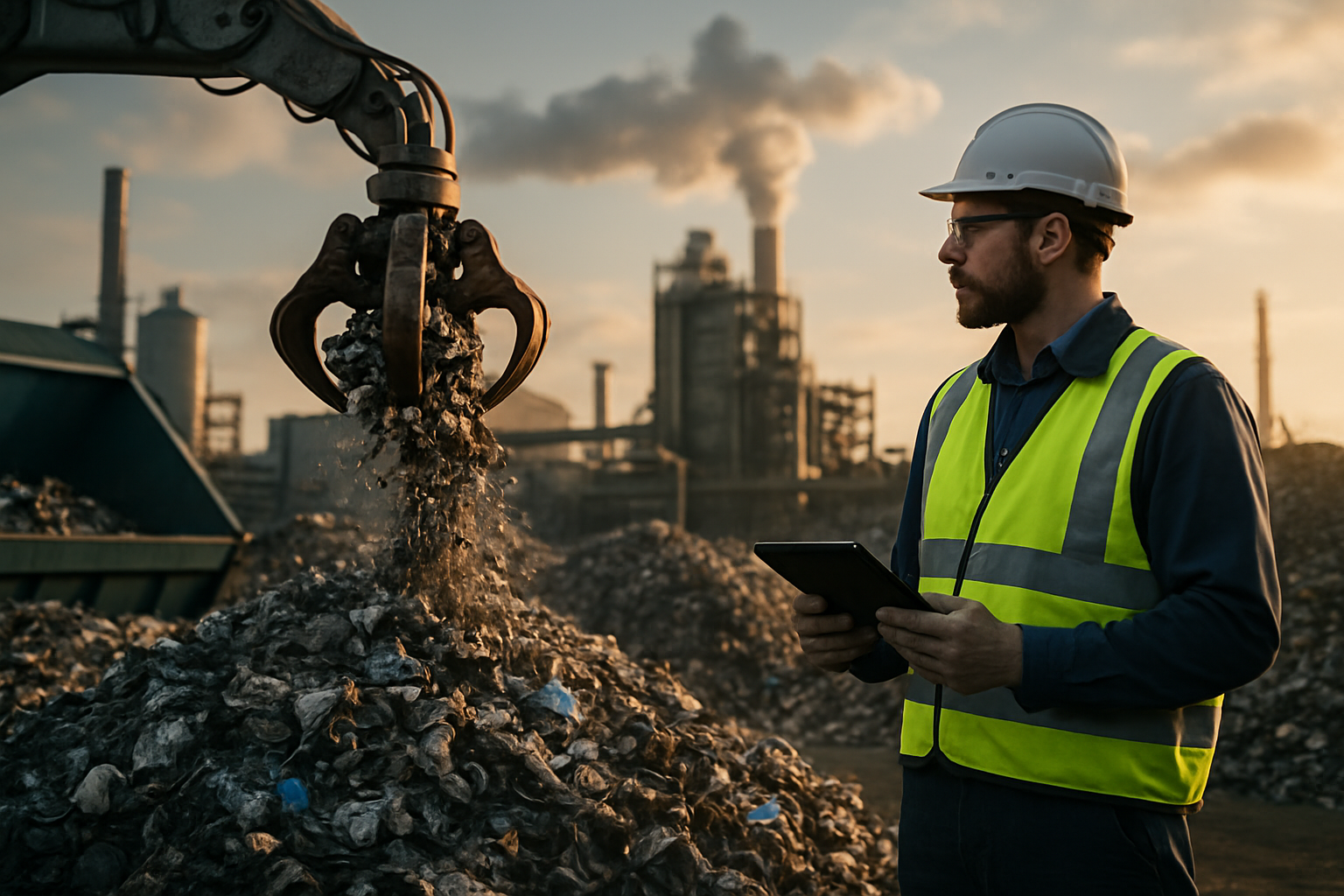What to Know About Driveway Paving That Lasts for Years
Your driveway is more than just a path to your garage. It’s the first impression of your home or business—your welcome mat to the world. Yet many driveways are cracked, uneven, or simply outdated. If you're tired of potholes, puddles, or an unattractive curb appeal, it's time to rethink what your driveway can be. Expert driveway paving services don’t just fix surfaces—they transform them. With the right team, materials, and techniques, your driveway can become a long-lasting investment that boosts property value and stands the test of time.

A durable driveway is more than just an entrance to your property—it’s an investment that affects your home’s value, functionality, and curb appeal. When properly constructed, a quality driveway can withstand years of vehicle traffic, weather extremes, and seasonal changes without significant deterioration. However, achieving this longevity requires careful planning, quality materials, proper installation techniques, and ongoing maintenance. This guide explores the essential factors that contribute to a long-lasting driveway and how homeowners can make informed decisions when undertaking a paving project.
Choosing the Right Paving Materials for Longevity
The foundation of a durable driveway begins with selecting appropriate materials. Asphalt, concrete, and pavers represent the most common options, each with distinct advantages. Asphalt driveways typically last 15-20 years and offer excellent value for colder climates due to their flexibility during freeze-thaw cycles. Concrete driveways can last 25-30 years or more with proper installation and maintenance, making them suitable for warmer regions. Pavers, whether brick, concrete, or natural stone, can last 25-50 years and allow for easier repairs since individual units can be replaced as needed rather than resurfacing the entire driveway.
Base materials are equally important for longevity. A properly compacted sub-base of crushed stone or gravel (typically 4-8 inches deep) provides essential drainage and structural support. Without this foundation, even the highest quality surface material will fail prematurely due to shifting, cracking, or sinking.
The Cheapest Way to Pave a Driveway Without Sacrificing Quality
Homeowners seeking cost-effective solutions have several options that balance initial investment with durability. Gravel driveways represent the most affordable paving solution, costing $1-3 per square foot installed. While requiring more maintenance than other materials, a properly installed gravel driveway with good drainage and regular regrading can last 5-10 years before needing significant attention.
Asphalt provides an excellent middle-ground option, typically costing $2-5 per square foot. For budget-conscious homeowners, a technique called chip sealing combines asphalt with stone aggregate to create a durable surface at a lower cost than traditional asphalt paving. Recycled asphalt is another economical alternative that repurposes existing materials for environmental and cost benefits.
Timing your project strategically can also reduce costs. Many paving companies offer discounted rates during off-peak seasons (late fall or winter in many regions) when demand is lower. Additionally, coordinating with neighbors for multiple driveway installations can sometimes secure volume discounts from contractors.
Essential Driveway Upgrades That Enhance Durability
Strategic upgrades during installation can significantly extend your driveway’s lifespan. Proper drainage systems prevent water accumulation that leads to cracking, erosion, and premature deterioration. This includes sloping the driveway away from structures (typically 1/4 inch per foot) and installing drainage channels or French drains in problem areas.
Edging treatments not only enhance visual appeal but also prevent edge deterioration. Concrete curbing, brick borders, or Belgian blocks provide structural support that keeps paving materials from spreading and cracking at the edges. For asphalt driveways, thicker installations (3-4 inches rather than the standard 2 inches) in high-traffic areas can prevent rutting and extend surface life.
Sealcoating represents another valuable upgrade for certain materials. Applied every 2-3 years to asphalt driveways, sealants protect against UV damage, water penetration, and chemical spills. For concrete driveways, penetrating sealers applied every 3-5 years help prevent staining and moisture absorption that leads to cracking during freeze-thaw cycles.
Professional vs. DIY: What to Know Before You Pave a Driveway
While DIY driveway installation may seem appealing for cost savings, professional installation often proves more economical long-term. Professional contractors bring specialized equipment for proper grading, compaction, and material application that most homeowners cannot access. They also understand regional soil conditions, drainage requirements, and climate considerations that affect installation techniques.
If considering professional installation, thoroughly research potential contractors. Request detailed written estimates from at least three companies, verify insurance and licensing, check references, and review previous work. The lowest bid rarely represents the best value—focus instead on contractors who demonstrate expertise through detailed proposals that address site-specific challenges.
For those committed to DIY approaches, gravel and paver driveways offer the most feasible options. However, even these require proper site preparation, including excavation, grading, and installation of geotextile fabric to prevent weed growth and improve stability. Concrete and asphalt installations generally demand professional expertise due to the specialized equipment and technical knowledge required for proper mixing, pouring, and finishing.
Comparing Driveway Paving Options and Providers
Understanding the relative costs, benefits, and limitations of different paving options helps homeowners make informed decisions that align with their budget and long-term goals.
| Material | Average Lifespan | Cost Per Sq. Ft. | Maintenance Requirements | Best Climate Conditions |
|---|---|---|---|---|
| Gravel | 5-10 years | $1-3 | High (annual regrading) | All climates |
| Asphalt | 15-20 years | $2-5 | Moderate (sealcoating every 2-3 years) | Cold/moderate climates |
| Concrete | 25-30+ years | $4-8 | Low (sealing every 3-5 years) | Warm/dry climates |
| Pavers | 25-50 years | $10-20 | Low (occasional joint sand replacement) | All climates |
| Stamped Concrete | 25+ years | $8-15 | Moderate (resealing every 2-3 years) | Moderate/warm climates |
Prices, rates, or cost estimates mentioned in this article are based on the latest available information but may change over time. Independent research is advised before making financial decisions.
Affordable Driveway Solutions for Long-Term Value
Maximizing the lifespan of your driveway requires regular maintenance regardless of material choice. For asphalt driveways, filling cracks promptly prevents water infiltration that leads to more extensive damage. Regular sealcoating every 2-3 years protects against oxidation and extends surface life. For concrete driveways, address cracks quickly with appropriate patching compounds and clean oil stains promptly to prevent deterioration of the surface.
Preventive measures significantly impact longevity. Avoid parking heavy vehicles like RVs or commercial trucks on residential driveways not designed for such loads. Install root barriers near trees to prevent root systems from growing under and lifting paving materials. In colder climates, use rubber-tipped snow shovels and avoid chemical deicers that can damage concrete surfaces.
Timing repairs appropriately saves money long-term. Minor issues addressed promptly prevent more expensive repairs later. For instance, resurfacing an asphalt driveway after 10-15 years (applying a new 1-2 inch layer over the existing surface) costs significantly less than complete replacement and extends the driveway’s life by another decade.
A well-constructed driveway represents a significant investment in your property, but with proper planning, quality materials, and regular maintenance, it can provide decades of service. By understanding the factors that contribute to longevity—from material selection to installation techniques to ongoing care—homeowners can make informed decisions that balance initial costs with long-term value. Whether choosing asphalt for its affordability, concrete for its durability, or pavers for their aesthetic appeal, the key to a lasting driveway lies in quality workmanship and consistent maintenance throughout its lifespan.




